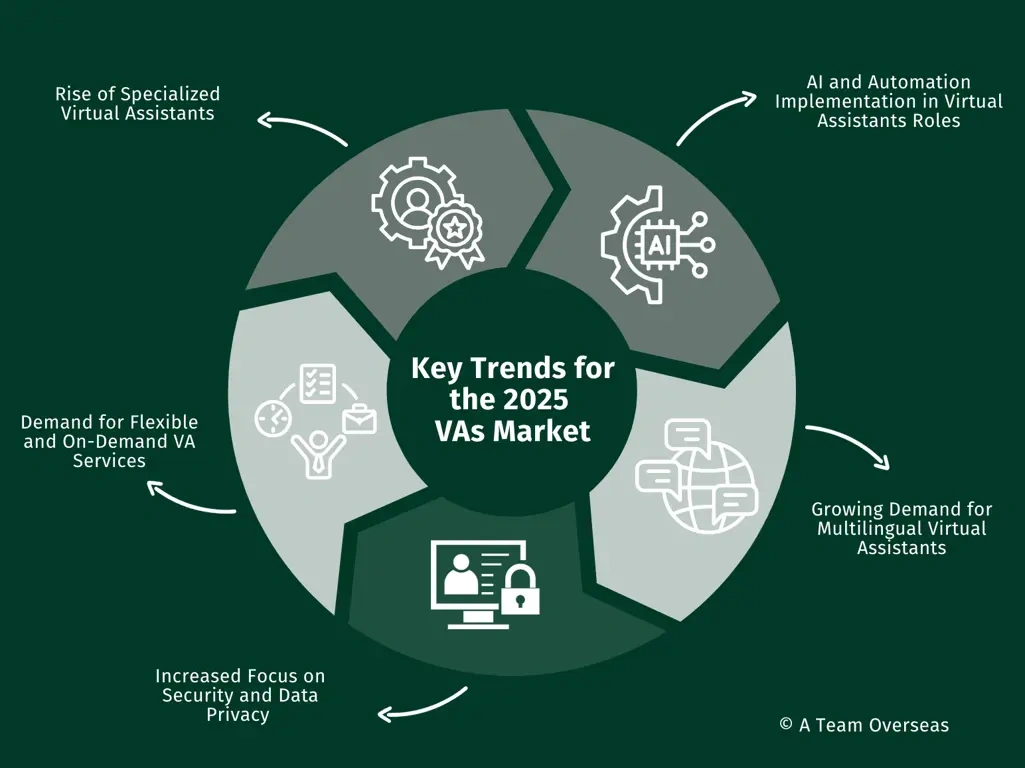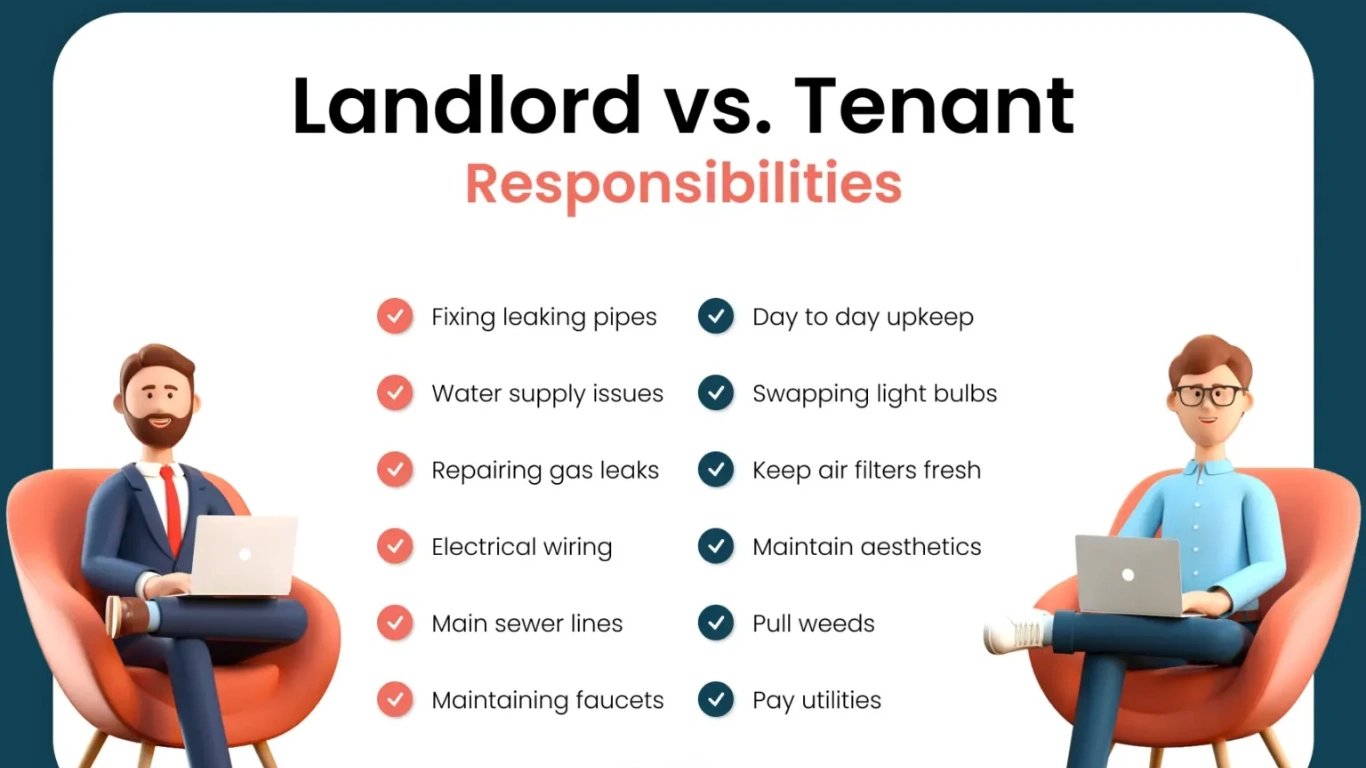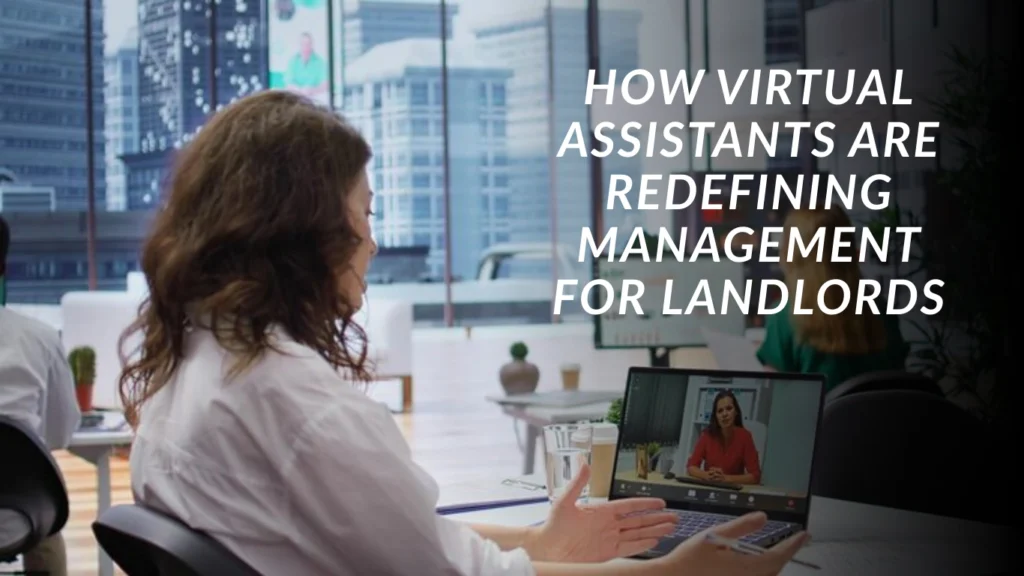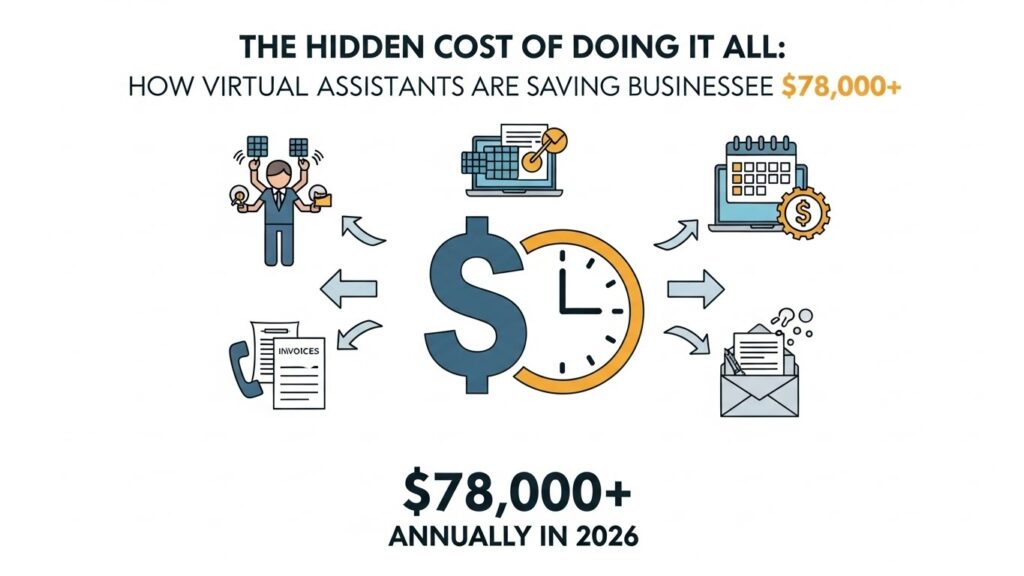Property management has always been one of the toughest parts of being a landlord. Late-night tenant calls, paperwork, rent collection, maintenance scheduling, and marketing vacant units can quickly change into a full-time job.
For many landlords, what started as a way to build a passive income ends up feeling anything but passive. And this is where virtual assistants help. With the right virtual assistant, landlords can offload time-consuming tasks, streamline operations, and create more space to focus on growth rather than getting stuck in day-to-day chaos.
The Role of Virtual Assistants In Property
Traditionally, landlords rely on on-site managers or property management companies to handle their rentals. But that often comes at a high cost, and sometimes, eat up to 8-10% of monthly rent. Virtual assistants provide a smarter, more affordable option by handling many of the same responsibilities remotely.
Be it organizing leases or managing tenant communication, a VA handles everything behind the scenes and keeps everything running smoothly while you stay focused on the bigger picture.
Key Areas Where VAs Assist

-
Tenant Communication
One of the biggest challenges for landlords is keeping up with tenant questions and concerns. Tenants expect quick replies when something goes wrong or when they need information, and delays can cause frustration.
A virtual assistant can take over this responsibility by managing emails, text messages, and even phone calls. This ensures tenants always get timely responses, whether it’s about rent, repairs, or general inquiries.
-
Rental Coordination
Filling a vacant unit quickly is crucial for steady income, but managing listings and showings can take up a lot of time.
A VA can create and post property listings on rental sites, respond to inquiries, schedule showings, and follow up with prospective tenants. They can also handle application forms and pre-screen potential renters based on your requirements.
-
Lease and Document Management
Paperwork is one of the most time-consuming parts of being a landlord. Leases, renewals, compliance forms, and other documents can pile up quickly, and missing even one can cause serious problems later.
A VA can organize and manage all these documents in a structured system so that nothing slips through the cracks. When it’s time for lease renewals or compliance checks, everything is already prepared and in order.
-
Rent Collection and Tracking
Late rent payments are a common headache for landlords, and chasing tenants for money can strain the landlord–tenant relationship. A VA can handle this by sending polite reminders before rent is due, following up on late payments, and keeping accurate records of who has paid and who hasn’t.
Using property management software, they can also generate simple reports that show landlords exactly how much rent has been collected each month and how cash flow looks overall.
-
Maintenance Scheduling
Dealing with repairs and maintenance is one of the most time-consuming and stressful parts of property management. Tenants want issues fixed quickly, and landlords often end up stuck making endless phone calls to contractors.
A VA can step in by managing the whole process, taking maintenance requests from tenants, contacting the right service providers, scheduling appointments, and following up until the repair is completed.
-
Bookkeeping and Expense Management
Keeping track of money going in and out of rental properties is essential, but it can quickly become overwhelming, especially for landlords with multiple properties.
A VA can maintain detailed records of expenses like cleaning, repairs, utilities, and contractor fees. They can also prepare summaries and simple reports that make it easy to see the net income from each property.
Why More Landlords Are Hiring VAs?

The benefits go beyond saving money. Many landlords struggle with multiple properties, family responsibilities, or even another career. Trying to manage everything alone often feels impossible. A VA takes on the extra work so landlords can finally focus on what’s most important.
- Tenants often call or message at all hours, and landlords can’t always keep up. A VA can help in answering questions, respond to emails, and handle small issues, so landlords aren’t stuck being on call 24/7.
- Many landlords never get around to it because the day-to-day work keeps them busy. With a VA running the background tasks, landlords are free to look for new properties and build their portfolio.
- A VA can manage things while the landlord is out of town, whether it’s a holiday or a work trip. Tenants still get fast support, and the business keeps running smoothly.
- A VA can provide many of the same services for a much lower cost, which means landlords keep more of their rental income.
Also Read: Beat Realtor Burnout by Delegating Admin Work to a Virtual Assistant
Tools that Make Remote Property Management Easier
Technology has made it easier than ever for virtual assistants to manage rentals from anywhere. With the right platforms and apps, they can keep everything organized and running smoothly while landlords stay in the loop.
Some of the most useful tools include:
- Buildium
- AppFolio
- Zoom
- Google Workspace
- Dropbox Business
- Monday.com
- ClickUp
- Airtable
Scalability for Growing Portfolios

A single rental might be manageable, but once landlords have several properties, things can get overwhelming fast. Virtual assistants help landlords manage this extra work without stress.
A virtual assistant can take care of tasks for three properties or thirty. Landlords do not need to hire full-time staff. This allows them to keep adding more properties while knowing the daily work is under control.
Security and Compliance
Managing rental properties means dealing with private information such as tenant applications, rent records, and signed agreements. It is important to keep this information safe. Virtual assistants can help by following clear safety steps:
- They use secure tools when sharing files so no one else can see them.
- They set up two-factor login on accounts to make sure only the landlord has access.
- They keep regular backups of important documents so nothing is lost.
- They sign confidentiality agreements to promise that private details stay private.
The Final Words
Managing rentals is hard work, and virtual assistants make it easier. They can answer tenant messages, renew leases, track rent, and schedule repairs. They take care of daily jobs so landlords do not feel overloaded. This gives landlords more time and less stress. It also helps the rental business run smoothly. Landlords can focus on growing their income and planning.
At Aurora Nexus, we help landlords find virtual assistants who know property management. With the right support, landlords can manage rentals well, keep tenants happy, and grow without extra hassle.
Ready to simplify your rentals and take back your time? Aurora Nexus connects landlords with skilled property management virtual assistants who handle the details so you can focus on growth. Get in touch today and discover how the right VA can make managing rentals stress-free.
Frequently Asked Questions:
[rank_math_rich_snippet id=”s-33c50166-fea1-4e03-bf37-84f18e46f83e”]





2 Responses